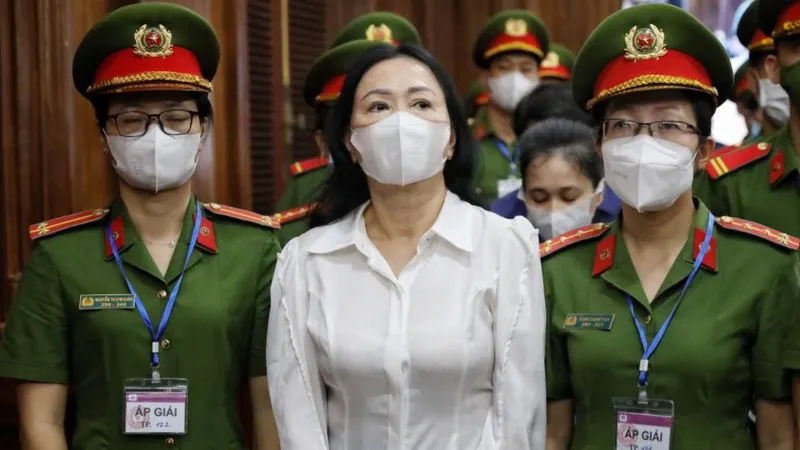Vietnamese Tycoon Truong My Lan at Center of Billion-Dollar Bank Fraud Case
The ongoing trial in Vietnam, featuring a 67-year-old property developer accused of orchestrating one of the world’s most significant bank frauds, has garnered global attention. Truong My Lan stands accused of embezzling $44 billion in loans from the Saigon Commercial Bank over an 11-year period, with $27 billion potentially unrecoverable. Conducted in the historic colonial-era courthouse in Ho Chi Minh City, the trial marks a departure from Vietnam’s usual secretive legal proceedings, showcasing an unprecedented level of transparency.
This high-profile case serves as the centerpiece of the “Blazing Furnaces” anti-corruption campaign spearheaded by Communist Party Secretary-General Nguyen Phu Trong. The campaign aims to combat deep-rooted corruption, perceived as a threat to the party’s hegemony. Trong’s conservative approach underscores the significance of eradicating corruption to uphold the party’s legitimacy.
Truong My Lan’s trajectory, from a humble market vendor to a prominent real estate mogul, mirrors Vietnam’s economic landscape post-Doi Moi. Economic reforms initiated in 1986 fueled rapid growth, with property development emerging as a primary avenue for wealth accumulation. However, corruption burgeoned, facilitated by personal connections with state officials and lax oversight.
Lan’s alleged scheme involved utilizing shell companies and proxies to seize control of Saigon Commercial Bank, subsequently authorizing massive loans to her network of enterprises. The magnitude of her operations, responsible for 93% of the bank’s lending, exposes systemic vulnerabilities.
The trial’s public exposure seeks to harness public indignation over corruption, epitomized by Lan’s austere courtroom appearance contrasting with her previous glamorous persona. Nonetheless, lingering questions persist regarding how she operated with impunity for an extended period. Speculation suggests she benefited from protection by influential figures in business and politics, reflecting broader systemic challenges.
Trong’s anti-corruption crusade, while pivotal for preserving political dominance, poses dilemmas for Vietnam’s developmental trajectory. The conundrum lies in curbing corruption without impeding economic vitality essential for realizing the party’s ambitious growth objectives. Striking a balance between anti-corruption initiatives and economic imperatives will be paramount as Vietnam navigates its forward course.


















